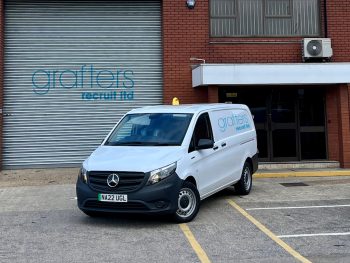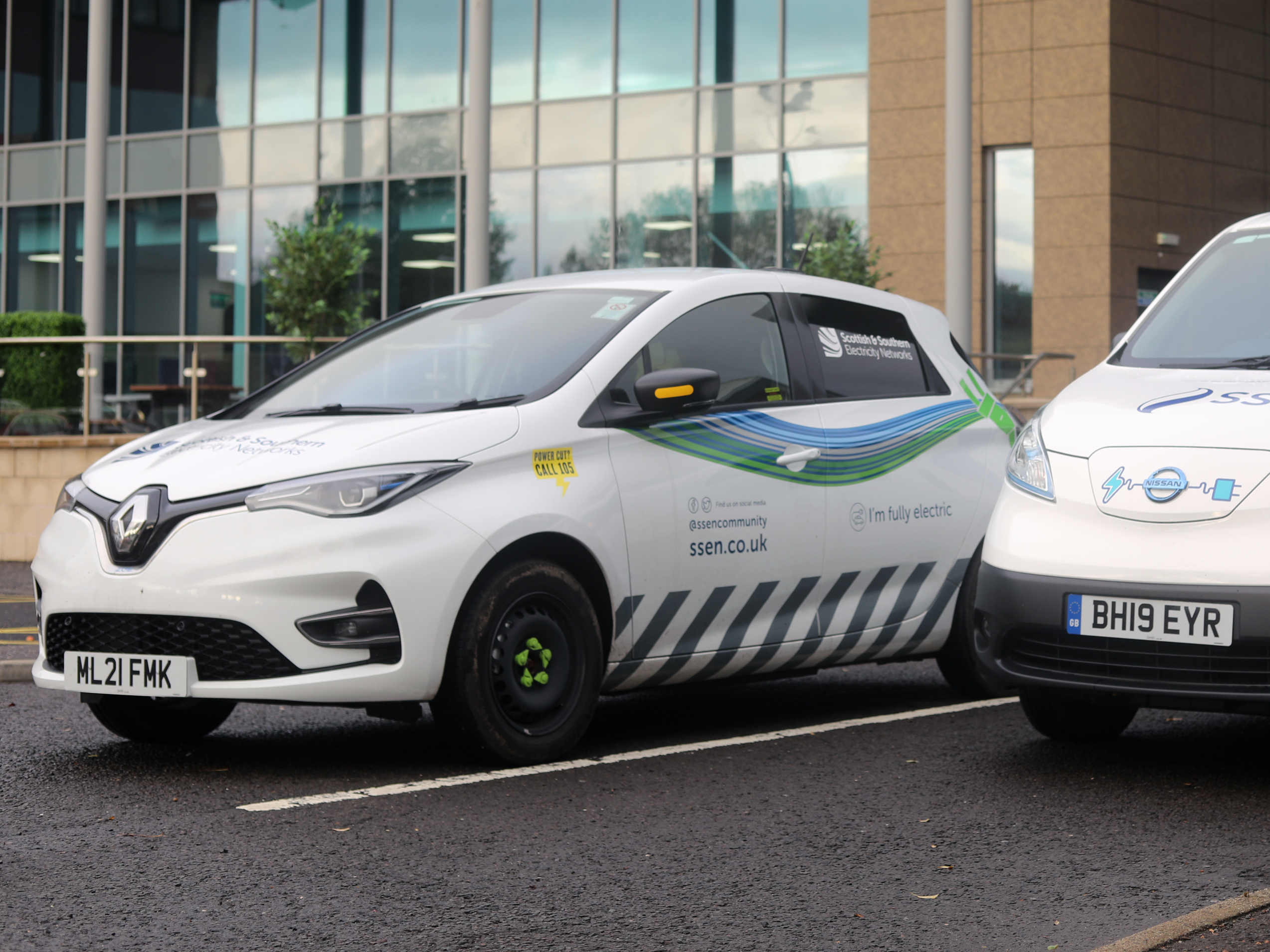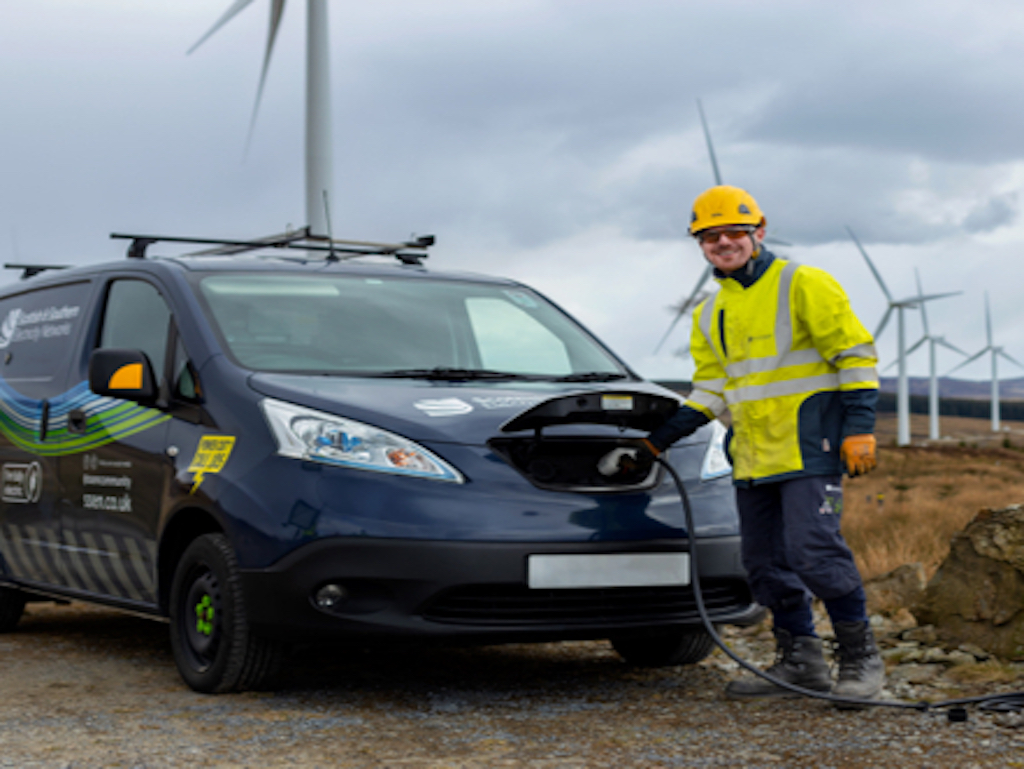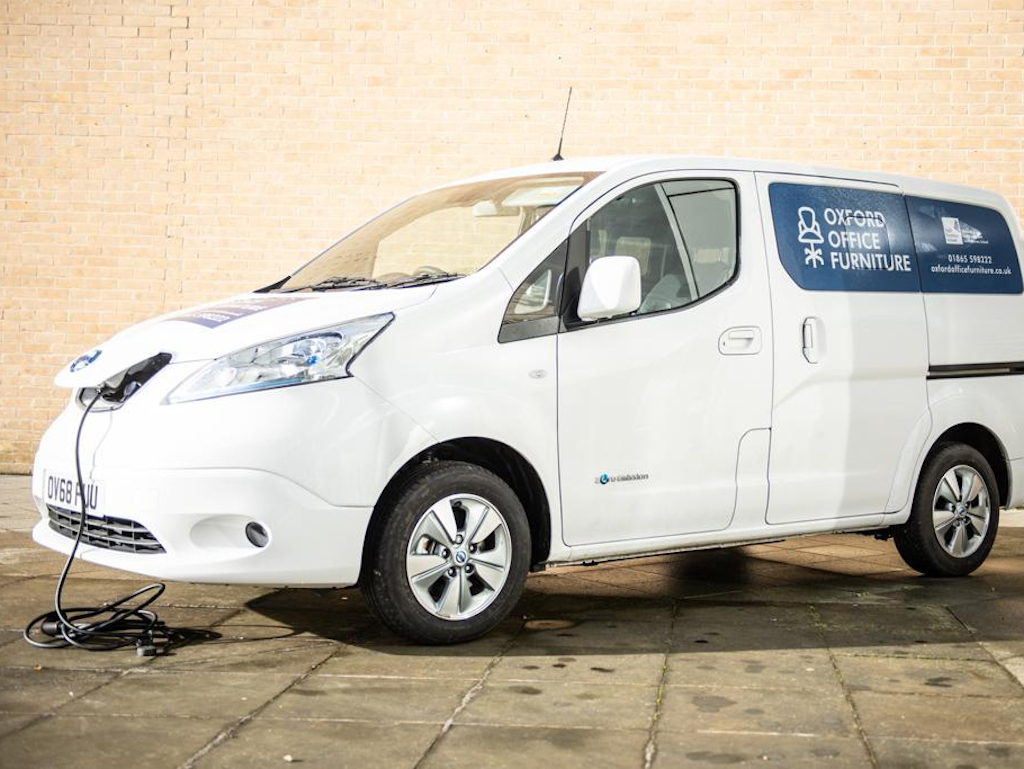The transition to electric is made easier by fleets having dependable partners along for the ride. Matthew MacConnell reports on van operators who have benefited from help from their friends.

Electrifying a fleet may be daunting, especially if it has been using fossil-fuelled vehicles until now. But many city or town-based companies are up against the clock as more ULEZ zones are introduced and as the 2030 ban approaches. Numerous companies have made the transition to EV and experienced many pros and cons of running an EV fleet along the way. Here’s a taste of what they reported back.
Crosstown Dough
Northgate has hired out nine electric vans to a scratch baker, Crosstown Dough, delivering doughnuts, cookies and ice cream throughout central London. Its area of operations meant the business was being hammered by congestion and ULEZ charges. As a result of introducing seven Peugeot e-Experts and two Mercedes eSprinters, the fines and fuel charges stopped, saving the company £53,000 between October 2021 and October 2022.
The company also chose to use the Northgate Vehicle Inspection app, which helps monitor the condition of the hired EVs, reducing admin costs. Facilitating things further, its use of the Northgate Allstar One Electric card has made more charging stations accessible, allowing Crosstown Dough to accelerate its growth plans.
Fleet manager Faouzi Attia says: “We realised our vision for the electrification of our transport when we began to work with Northgate just over a year ago. It was a crucial move to become a zero-carbon business and it held a lot of benefits. Going green gave us massive cost savings, especially after the pandemic. Northgate played a big part by being very helpful, with advice and support from a fantastic team.”
The Nurture Group
Another company supported by Northgate is the Nurture Group, specialising in landscaping, pest control and grounds maintenance. The group has used Northgate since 2018 and has over 420 vehicles on hire, 87.5% of which are EVs or hybrids. The company’s goal was to decrease its carbon footprint and enhance energy efficiency. To kick things off, an EV suitability test was conducted for vehicles travelling less than 150 miles a day – and then a list of the company’s wider fleet was tested for the opportunity of further vehicles to be transitioned over time. Various charging points have now been fitted to depots nationwide and, because of this electrification shift, the Nurture Group has attracted more business.
Grafters Recruit

Vehicle hire company Radius analyses a business’s needs, offering the best EV solution for that organisation – and it also gives complimentary access to its Synergy fleet management system which features compliance, fleet operations and control costs. Meanwhile, Grafters Recruit, a recruitment specialist that provides drivers to the logistics industry, was approached at the end of summer 2022 by a client looking for a greener solution.
Contact was made with Radius which then supplied 18 Mercedes E Vito vans.
“Initially, I chose Radius as it was able to provide the vans at speed, but now we have been using the vans for a while, I have been impressed by how straightforward everything has been including vehicle servicing,” explains Danny Phillips, managing director, Grafters. Over time, Grafters has specified more products with Radius, such as vehicle-fitted telematics devices, ensuring the vehicles are offering top performance and encouraging safer driving. Another product used is the Radius Velocity portal, which tracks all the vehicles and can review journeys over 30 days; accounts departments also benefit as they can see all the company’s invoices on one platform.
One year on, the feedback from the drivers and the company is positive. All the drivers were trained on how to get the best range from the vans and how to correctly charge them. “The drivers really like the vans – they are incredibly smart, much nicer than your average work van, so the feedback has always been positive,” reports Phillips. “They are much nicer than our old fleet.” With the drivers delivering mainly to London, the savings have been made from congestion zone exemption and no ULEZ charges. While money was saved on fuel, Grafters was hoping for bigger savings in the winter, but they didn’t materialise due to the energy price hike.
United Utilities
Vodafone’s Business Fleet Analytics system has been supporting United Utilities – a company that relies heavily on its 2,300-strong van fleet to keep water flowing to customers around Northwest England – on its journey to EV. While United’s goal is to conduct business in an environmentally sustainable and socially responsible way and have a fully green fleet by 2028, it also needs to reach customers on time and be able to react to urgent situations.
Electric LCVs, optimised route planning, reduced maintenance costs and safer and better driving behaviour will help make these goals a reality. The company replaces its vehicles every seven years and has started to integrate EVs into its fleet. Of course, like any company making the switch, there are questions, such as: “How many and what type of vehicles should I switch?” To help answer these questions, United Utilities used data from Vodafone’s Green Fleet dashboard. Reporting, plus consultancy and collaboration, helped to answer which vehicles to switch – those driven by employees with a pool van and living on a property with a driveway. Further topics of analysis included how moving from ICE vehicles to EVs could reduce the company’s carbon emissions and how the change would impact business infrastructure. The latter included managing depot charging and the selection process of which employees would be able to charge EVs at home. “Vodafone took the time to understand the challenges that we faced in switching to an electric fleet – so we could reduce our emissions,” says Carl Doyle, business lead, United Utilities. “Its reports and expertise helped us to understand what was possible while making sure changes supported our charging infrastructure – so we could make the right decisions for our business.”
Riverford Organic Farmers
Organic vegetable delivery company Riverford Organic Farmers is aiming to run a 100% electric fleet by the end of 2025 under Webfleet’s support. Its fleet currently consists of 33% electric vehicles – a mix of Ford E–Transits, Vauxhall Vivaro Electrics and Nissan e-NV200s. When it comes to charging, Riverford has adopted a depot charging model, via which vehicles will return to their depot at night to be replenished. Impressed with the EV ranges so far – delivery routes were planned to ensure they are within each vehicle’s expected range – plans are well underway to grow the number of its EVs to meet company targets. Riverford’s advice to other companies who are thinking of making the change is to listen to and consult with drivers and local managers. Their knowledge, it believes, will be invaluable in helping shape which areas of the business can make the EV shift and at what pace. Secondly, the charging infrastructure and support that surrounds it are just as important as the EV, so ensure that they are implemented early and understood by all stakeholders.
To expand on that point, Webfleet supports Riverford via its EV fleet management software which helps manage routes and navigate efficiently to charge points. The software also tracks the vehicle, monitors battery health, remaining driver range and energy consumption. Recently breaking a Guinness World Record, Webfleet used a Fiat E-Scudo to travel 311 miles at an average of 4.5mi/kWh on a single charge. “Insights from dedicated EV management solutions, such as Webfleet’s EV toolkit, can help ease the electric van transition and support ongoing operation – minimising cost and optimising performance,” says Beverley Wise, Webfleet regional director for Bridgestone Mobility Solutions.
SSE
Energy supplier SSE looks for flexible matches when selecting EVs that meet operational requirements and originally used Renault Zoe vans until they lost their Euro NCAP rating. Some drivers take their electric vans home, so one issue SSE had to deal with was choosing whether the drivers should be paid up front when charging their vans overnight or claiming back the expense, which can take anywhere between six to seven weeks. They combatted this question by installing free home chargers and providing an Allstar Homecharge solution, which allows fleet managers to monitor home charging and reimburse energy suppliers directly. SSE then investigated workplace charging and by the end of 2023 it will put a total of 400 charging points around various substations and offices.
“For drivers living in terraced housing there are a couple of options such as Kerbo Charge – and if more councils get on board, it would be a game-changer for on-street charging,” says Graham Robinson, SSE’s national fleet zero emissions manager. “It needs to be communicated more, I feel, because we’re not in a race – we’re all trying to get there together.”
SSE also trials vans, such as the Ford E-Transit, and can put these vehicles through their paces in real-world environments. Smaller fleets may not have this option, although it is worth enquiring with the manufacturer. SSE, having both salary sacrifice and company car schemes, has approached charging companies asking for a discount on installations as a benefit to the staff, which has come back positive, says Robinson. “It’s about being innovative and looking at the changes ahead such as solar-powered chargers and vehicle-to-grid so you can save money. It’s all about having that support.”
Oxford Furniture
On the other hand, drivers for office furniture supplier Oxford Furniture, often travel from Oxford to London. It bought four Nissan e-NV200 Combis and fitted tow bars for trailers, taking the payload up to that of a Mercedes Sprinter LWB.
“Electric vans need to come down in price, they’re just too expensive,” says Dave Beesley, CEO of Oxford Furniture, which was the UK’s first company to adopt vehicle-to-grid charging and currently has three chargers.
Another company to comment on the matter was Royal Mail.
“We’ve just ticked over 5,000 EVs in our fleet,” reveals Rob Fowler, fleet director at Royal Mail. “Technology, charging and people are important in transitions and with technology advancing, driving ranges on vans will get better. To us, charging is less about the hardware and more about the data it can give you and how you can manage the infrastructure. People don’t like change, but our drivers enjoy driving the vans. It’s all about getting over the aversion, and people will, and it’s important to train the drivers.”






